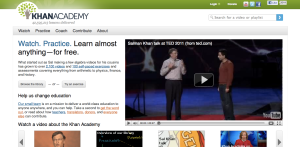I nya – Läroplan för grundskolan, förskoleklassen och fritidshemmet 2011 – Läroplanen LGR 11 på sidan 202 – står det att följande ska läras ut – Undervisningen i samhällskunskap ska behandla följande centrala innehåll I årskurs 7–9.
Information och kommunikation.
Mediernas roll som informationsspridare, opinionsbildare, underhållare och granskare av samhällets maktstrukturer.
Olika slags medier, deras uppbyggnad och innehåll, till exempel en dagstidnings olika delar. Nyhetsvärdering och hur den kan påverka människors bilder av om världen. Hur individer och grupper framställs, till exempel utifrån kön och etnicitet.
Möjligheter och risker förknippade med Internet och kommunikation via elektroniska medier.
på sidan 272 I ämnet – Teknik – människa, samhälle och miljö I årskurs 7-9.
Internet och andra globala tekniska system. Systemens fördelar, risker och sårbarhet. Samband mellan teknisk utveckling och vetenskapliga framsteg. Hur tekniken har möjliggjort vetenskapliga upptäckter och hur vetenskapen har möjliggjort tekniska innovationer.
Alltså bör alla lärare, lärarstudenter, elever ha kunskap om och lära ut vad följande innebär.
ACTA – Anti Counter-Feiting Trade Agremeent
SOPA – Stop Online Piracy Act
PIPA – PROTECT IP Act (Preventing Real Online Threats to Economic Creativity and Theft of Intellectual Property Act
Från TED – Defend our freedom to share (or why SOPA is a bad idea) av Clay Shirky – om vad SOPA och PIPA är.
What Is ACTA? – Mycket bra innehåll om teknik om hur internet-teknik fungerar
SOPA and PIPA från Khan Academy
Harvard och Stanford professorn Lawrence Lessig från TEDxNYED TEDx med fokus på utbildning talar om, innovation, kreativitet, dela, värderingar, frihet, öppenhet … Lessig är även grundaren av Creative Commons
Google har en bra sida – END PIRACY NOT LIBERTY
Stort och bra inslag som går på djupet om ACTA Vad, Varför, Hur från Aljazeera
TED Talk Mikko Hypponen: Three types of online attack
#Crimianals #Hacktivist #NationStates
